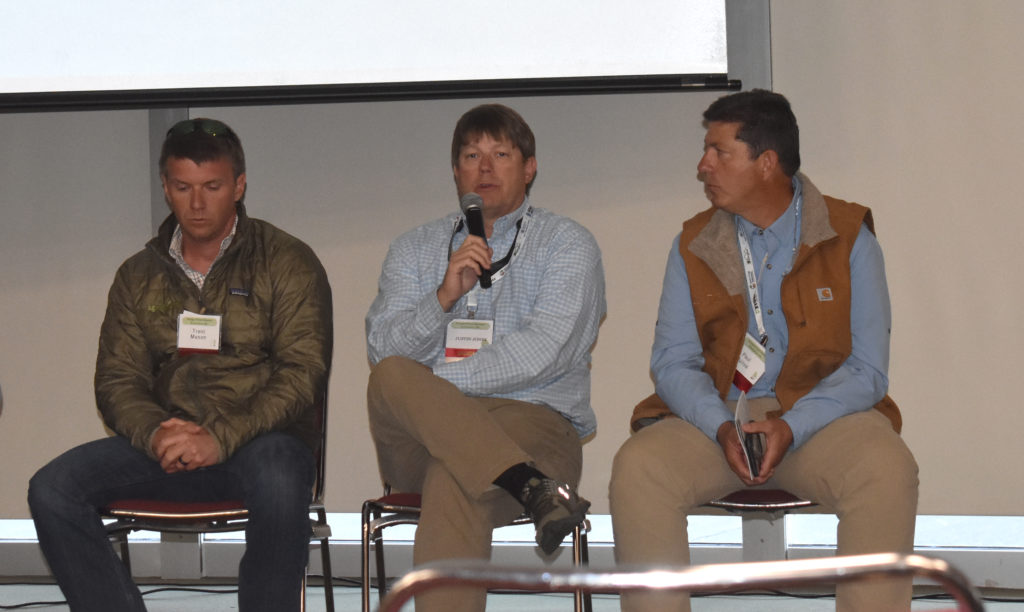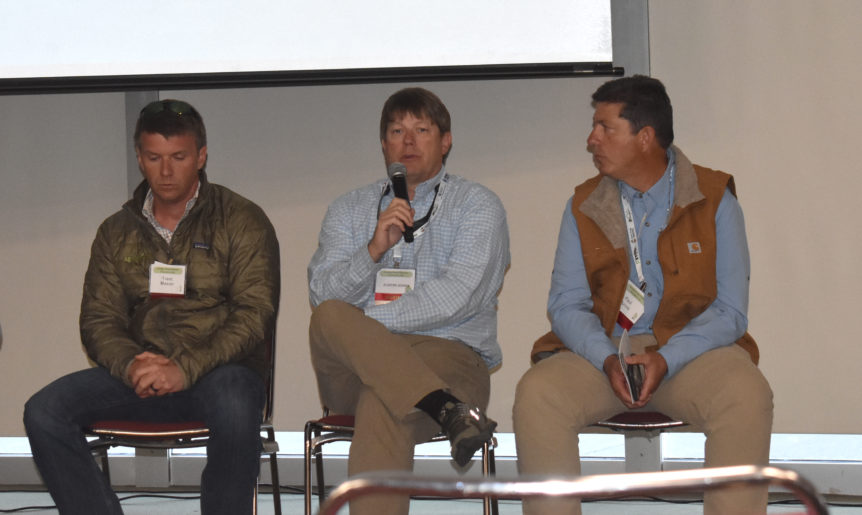
By Clint Thompson
A unified pecan industry benefits all states involved. That includes Georgia and Alabama in the Southeast, along with New Mexico and Arizona out west.
Georgia producer Justin Jones has experienced the unification first-hand and describes the importance of continuing amid the current challenges impacting the industry.
“I go back to using this analogy, a rising tide will float all boats,” said Jones, based in Leesburg, Georgia, who also serves as the Eastern grower rep for American Pecan Council (APC) and chair of industry relations committee for APC. “It’s the same concept here. Whether it’s good for Georgia or good for New Mexico or good for Arizona or good in Alabama, as a whole, it works for the industry most of the time. You take that most of the time where it’s good for everybody and just compound on it. When you get a win, it makes everybody feel good and makes them all want to work together again.”
Georgia Pecan Growers Association Annual Meeting
Jones talked about that significance during last week’s Georgia Pecan Growers Association annual meeting. Pecan producers from Georgia and New Mexico, for example, may not share the same production challenges and strategies, but they share a goal of making U.S. pecans a valuable commodity again.
“If you go back and look at all commodities and the history of them, there’s always been a disconnect at the grower level and where it goes from there and how it ends up down the commodity chain. I think pecans are a no different situation,” Jones said. “Now that we’ve got these national boards, we’re now getting people sitting in the same room that hadn’t done that ever. When they did attempt it years ago, it wasn’t successful. Nothing bad against those guys that did it before me but when you get into a federal marketing order, it forces you to sit down and make tough decisions where you try to help everyone.”
Attempting to Spark Change
While it may be unrealistic to expect change overnight, at least the industry is attempting to spark change with those involved.
“You begin to realize that everybody is in that same boat. ‘I fight scab over here and fungicide wise we’re trying to spray.’ ‘We’re good on that, but I’m fighting water over here and it costs me this much.’ You get these conversations start happening,” Jones said. “On a bigger level, you then start to get the accumulators in the room and processors in the room. What it’s done for me personally is opened up my eyes to say, ‘I know what I go through on the farm, but then I go to look at these businesses that handle the product beyond the farm and see their struggles.’ It makes you scratch your head and say, ‘How can we fix this as a whole?’
“That’s what we’re starting to see in the whole industry now. Sitting at the round table and putting ideas out there; see what works and what doesn’t.”










